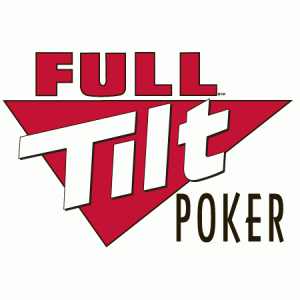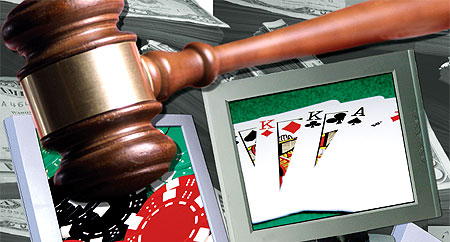 Yesterday was quite the day for the online poker world with the US Department of Justice seizing the domains of the world’s largest online poker sites. There’s been many reactions and speculation as to what’s happening and what’s going to happen in the coming days. Many are angry that the US continues to go after online poker. This is not the case here; this isn’t about whether online poker is legal or whether or not it’s a game of skill or a game of luck. This is about money laundering and tax evasion that took place through the websites.
Yesterday was quite the day for the online poker world with the US Department of Justice seizing the domains of the world’s largest online poker sites. There’s been many reactions and speculation as to what’s happening and what’s going to happen in the coming days. Many are angry that the US continues to go after online poker. This is not the case here; this isn’t about whether online poker is legal or whether or not it’s a game of skill or a game of luck. This is about money laundering and tax evasion that took place through the websites.
After reading the Civil Complaint it became apparent that the US Government had every right to do what they did. Here’s an excerpt that helps to better explain the crime:
“For example, defendants ISAI SCHEINBERG and PAUL TATE of PokerStars, RAYMOND BITAR and NELSON BURTNICK of Full Tilt Poker, and SCOTT TOM and BRENT BECKLEY of Absolute Poker, arranged for the money received from U.S. gamblers to be disguised as payments to hundreds of non-existent online merchants purporting to sell merchandise such as jewelry and golf balls.”
“By late 2009, after U.S. banks and financial institutions detected and shut down multiple fraudulent bank accounts used by the Poker Companies, CHEINBERG and BITAR developed a new processing strategy that would not involve lying to banks. PokerStars, Full Tilt Poker, and their payment processors persuaded the principals of a few small, local banks facing financial difficulties to engage in such processing in return for multi-million dollar investments in the banks. For example, in September 2009, ELIE and others approached defendant JOHN CAMPOS, the Vice Chairman of the Board and part owner of SunFirst Bank, a small, private bank based in Saint George, Utah, about processing Internet poker transactions. While expressing “trepidations,” CAMPOS allegedly agreed to process gambling transactions in return for a $10 million investment in SunFirst by ELIE and an associate, which would give them a more than 30% ownership stake in the bank. CAMPOS also requested and received a $20,000 “bonus” for his assistance. In an e-mail, one of ELIE’s associates boasted that they had “purchased” SunFirst and that they “were looking to purchase” “a grand total of 3 or 4 banks” to process payments.”
They knowingly bought banks or bribed banks in order to circumvent UIGEA. We agree that UIGEA is ambiguous but it is still a law.
Andrew Feldman of ESPN has reported that the US DOJ is trying to shut down the sites globally. We don’t know how this can be done. Full Tilt Poker and Pokerstars operate in a jurisdiction where online poker is legal. They are both licensed in countries like the France and the UK. We suspect the only way this could happen is if the US DOJ has proof of money laundering or tax evasion in those countries and is sharing this information with countries world wide.
At Holdem Poker Chat we’re being optimistic about the whole situation. This is in fact exactly what the Las Vegas casinos wanted. They are now on a level playing field with online poker and can now make a strong case for legalizing and regulating online poker in the USA. In fact we expect this to happen rather quickly now that their competition is out of the way.
Black Friday Recap
Pokerstars, Full Tilt Poker, Absolute Poker and UB we’re named in an indictment by the U.S. Department of Justice and their domains were seized and replaced with a warning page.
PokerStars has suspended real money play for US players. Players can log in but can’t play at the real money tables. The PokerStars website can be accessed by going to pokerstars.eu and player support is available at support@pokerstars.eu.
Steve Wynn has cancelled his partnership with Pokerstars for PokerstarsWynn.com
Pokerstars has already lost 25% of its traffic.
PokerStars dropped some of their guarantees, including Sunday Storm (from 300K to 200K) and Sunday Million (from 1.5M to 1M)
Full Tilt Poker has left the US market until further notice, and is ensuring that the money is safe with them. Players may send inquiries to support@fulltiltpoker.co.uk.
Fertitta (Stations Casinos) has ended their partnership with Full Tilt Poker
Full Tilt Poker will lose 40+% of its traffic.
Full Tilt Poker has Cancelled the Onyx Cup
Sources have told poker news organizations that UB and Absolute Poker will likely stay in the US.
As of this morning April 16, 2011 players could still play real money games on both sites.
We do not at this time think that this will trickle down to other online poker sites that accept US players like those on the Merge and Cake networks. There are many rumors flying around that other sites including sportsbooks will be next but those are just rumors. Again, this is about money laundering and tax evasion. Not about whether poker is legal or not. We’re slowly updating our review pages to reflect the changes. If you’re looking for a new place to play, we suggest you try Lock Poker where we’ve secured a very nice bonus for all new players.
Stay tuned to Holdem Poker Chat for all the latest Online Poker News.


 Full Tilt Poker
Full Tilt Poker The Feds are once again going after poker sites without defining what “illegal gambling” is. Without a real law, or a working definition, this amounts to just a strong arm shakedown. “We are big tough guys so we will tell you what to do, even though we have no lawful basis to do so”
The Feds are once again going after poker sites without defining what “illegal gambling” is. Without a real law, or a working definition, this amounts to just a strong arm shakedown. “We are big tough guys so we will tell you what to do, even though we have no lawful basis to do so”